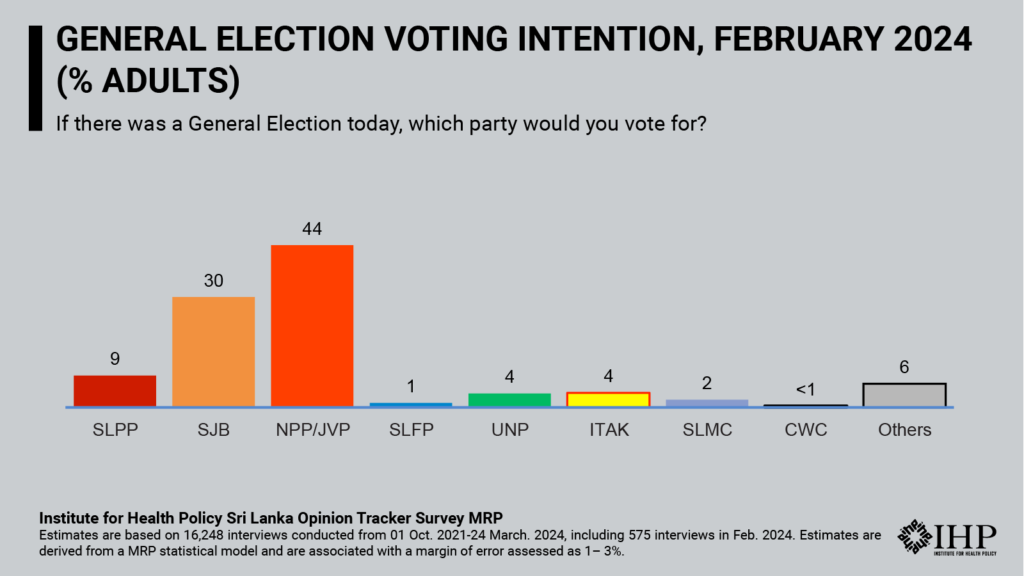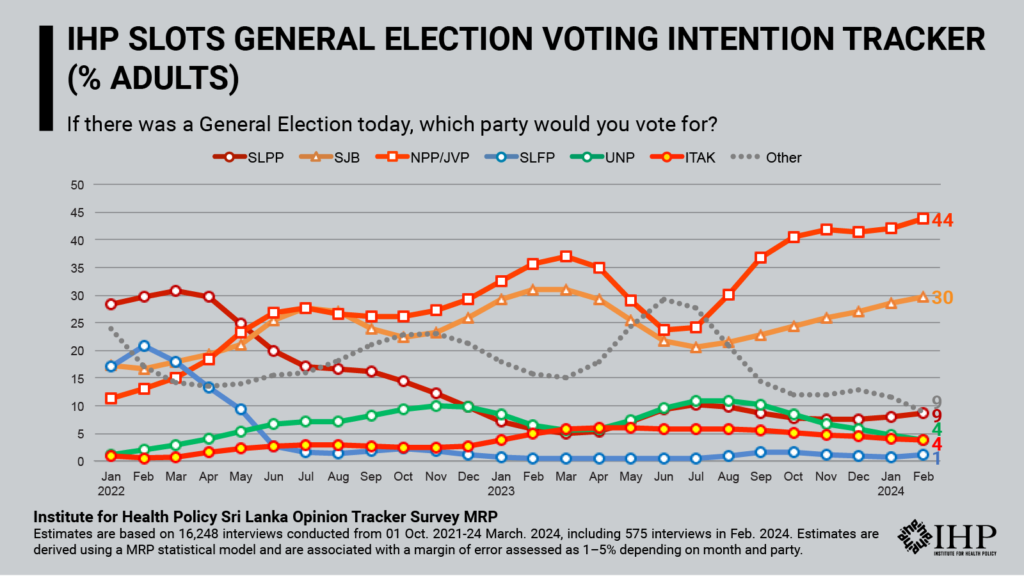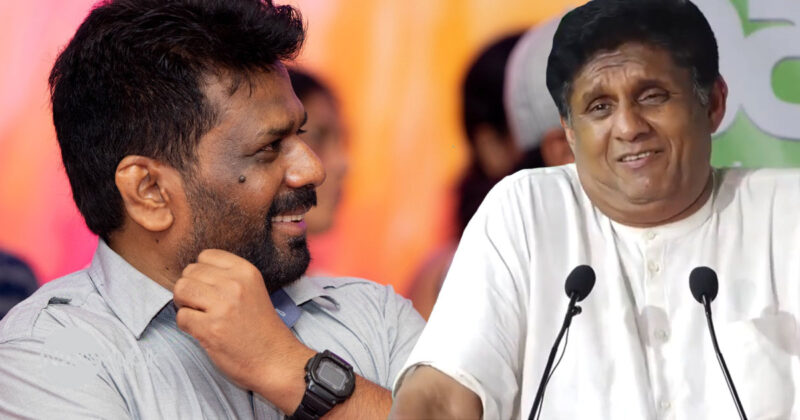The latest estimates from Institute for Health Policy’s (IHP) SLOTS MRP model show modest increases in support for NPP/JVP and SJB, with weakening support for the UNP and other parties, continuing trends since July 2023. NPP/JVP lead with 44% (+2) support of Sri Lankan adult voters, followed by SJB with 30% (+1), the SLPP at 9% (+1), the UNP at 4% (-1) and ITAK at 4% (unchanged).

The February estimates are provisional and are associated with a margin of error of 1–3% for the four leading parties. Compared to IHP’s February release, IHP estimates of NPP/JVP and SJB support in Jan. 2024 were revised +2 and -1 points.

These estimates are for all adults and not for likely voters and are based on the IHP SLOTS Multilevel Regression and Poststratification (MRP) model.
This February 2024 update is based on 16,248 interviews conducted with adults across Sri Lanka since Oct. 2021, including 575 interviews carried out in Feb. 2024. IHP’s SLOTS MRP methodology first estimates the relationship between a wide variety of characteristics about respondents and their opinions, in this case, “If there was a General Election today, which party would you vote for?” in a multilevel statistical model. It then uses a large data file that is calibrated to the national population to predict voting intent in each month since October 2021, according to what the multilevel model says about their probability of voting for various parties (‘post-stratification’) at each point in time. The multilevel model was estimated 100 times to reflect underlying uncertainties in the model and to obtain margins of error.
SLOTS combines interviews from a national sample of adults (ages 18 and over) reached by random digit dialling of mobile numbers, and others coming from a national panel of respondents who were previously recruited through random selection and face-to-face interviews.
The February 2024 MRP estimates are based on 16,248 interviews conducted from 1 October 2021–24 March 2024, including 575 interviews conducted in February 2024.
